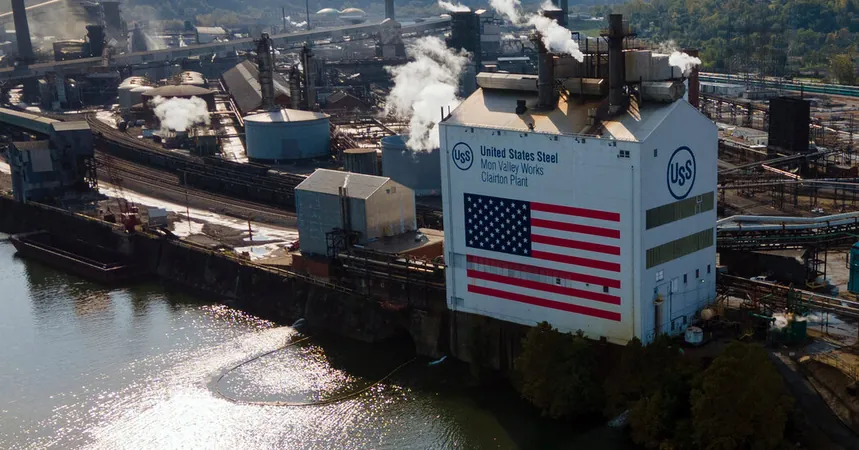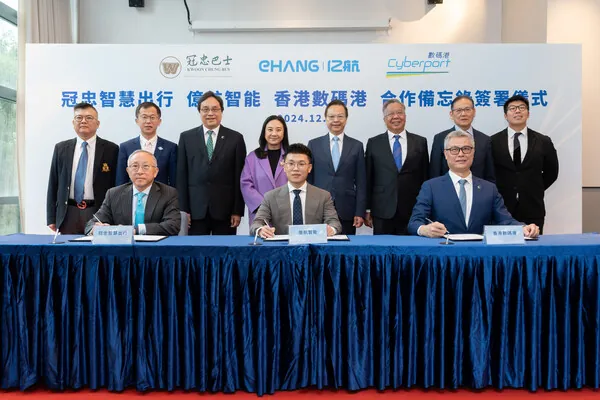
Trump Vows to Block Nippon Steel’s Acquisition of U.S. Steel: What This Means for the Industry
2024-12-03
Author: Wai
Trump Vows to Block Nippon Steel’s Acquisition of U.S. Steel: What This Means for the Industry
In a bold statement made on Monday night, President-elect Donald J. Trump announced that he would actively block the proposed acquisition of U.S. Steel by the Japanese company Nippon Steel. Trump declared that he would not stand by as the historic American company fell into foreign hands.
This announcement marks the first time Trump has addressed this controversial deal since his electoral victory last month. Analysts had speculated that the acquisition could proceed once political pressure eased, but Trump’s resolute stance indicates significant challenges ahead for Nippon Steel’s bid, which is valued at $15 billion.
On his social platform, Truth Social, Trump expressed his firm position, stating, “I am totally against the once great and powerful U.S. Steel being bought by a foreign company, in this case Nippon Steel of Japan. As President, I will block this deal from happening. Buyer Beware!!!”
This sentiment isn’t isolated to Trump. Current President Joe Biden and Vice President Kamala Harris also indicated opposition prior to the elections, with the Biden administration previously signaling intentions to prevent the deal due to concerns over national security and domestic industry competitiveness. In September, in response to the rising political tensions surrounding the deal, the administration allowed Nippon to resubmit its proposal to the Committee on Foreign Investment in the U.S. (CFIUS) for further review.
As the deadline for this review approaches, U.S. Steel executives have argued that the acquisition is crucial for their company's survival, stating that without it, job cuts may be inevitable. With U.S. Steel being a pillar of American infrastructure since its founding in 1901, the implications of such changes could resonate beyond the company itself.
The stakes are particularly high in Pennsylvania, the home state of U.S. Steel, a critical battleground in the recent elections. Local leaders, including those in the United Steelworkers union, have expressed alarm over the acquisition, fearing potential job losses and reduced investment in local operations. “The proposed sale is bad for workers, our communities and the domestic industry,” stated the union, emphasizing the risk to national security and the disruption of domestic supply chains.
While some critics posit that the deal could be blocked on national security grounds due to the control of essential steel production shifting to a foreign entity, supporters argue that such concerns are unfounded given Japan’s status as a longstanding U.S. ally. Prominent figures like Mike Pompeo, former secretary of state, and Wilbur Ross, former commerce secretary, have endorsed the deal.
As Nippon Steel continues to lobby for approval, including meetings with key stakeholders and local officials, time is running out. Their optimism for a favorable decision rests on a tight timeline, with hopes set on a conclusion before the upcoming holiday season.
The outcome of this controversial transaction will not only impact the steel industry but could also have broader implications for U.S. foreign investment policies, economic security, and the future of American manufacturing. With Trump’s administration looking to revitalize U.S. Steel through his proposed economic policies, the battle for control of one of America’s iconic businesses is far from over. Stay tuned as this story unfolds!





 Brasil (PT)
Brasil (PT)
 Canada (EN)
Canada (EN)
 Chile (ES)
Chile (ES)
 España (ES)
España (ES)
 France (FR)
France (FR)
 Hong Kong (EN)
Hong Kong (EN)
 Italia (IT)
Italia (IT)
 日本 (JA)
日本 (JA)
 Magyarország (HU)
Magyarország (HU)
 Norge (NO)
Norge (NO)
 Polska (PL)
Polska (PL)
 Schweiz (DE)
Schweiz (DE)
 Singapore (EN)
Singapore (EN)
 Sverige (SV)
Sverige (SV)
 Suomi (FI)
Suomi (FI)
 Türkiye (TR)
Türkiye (TR)